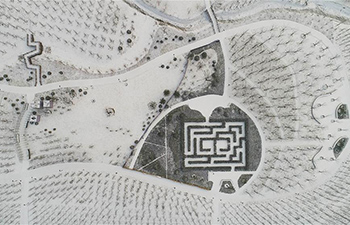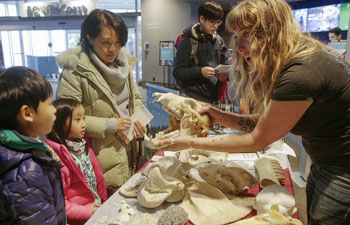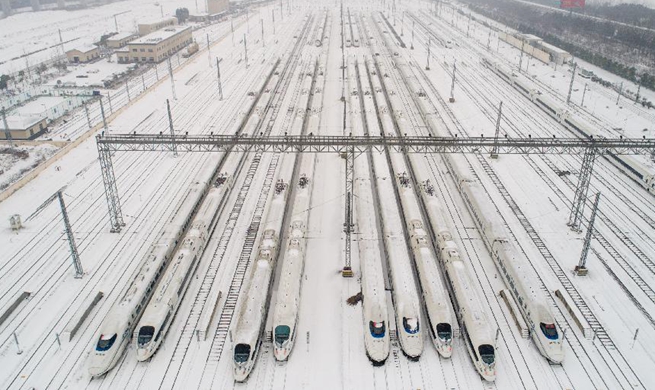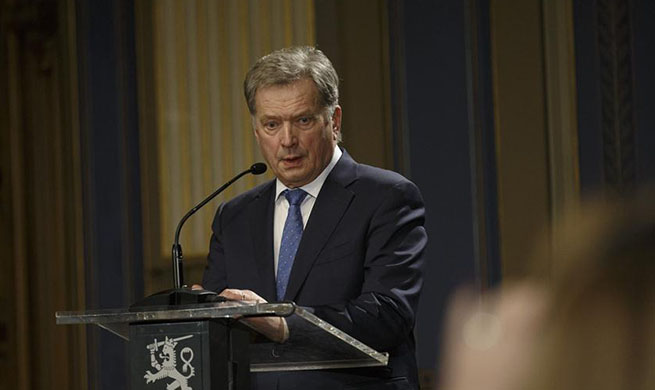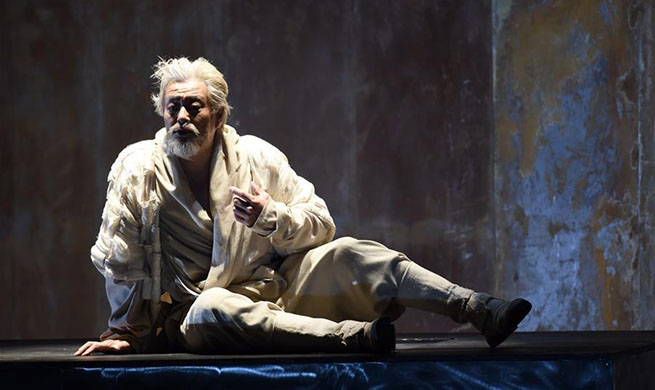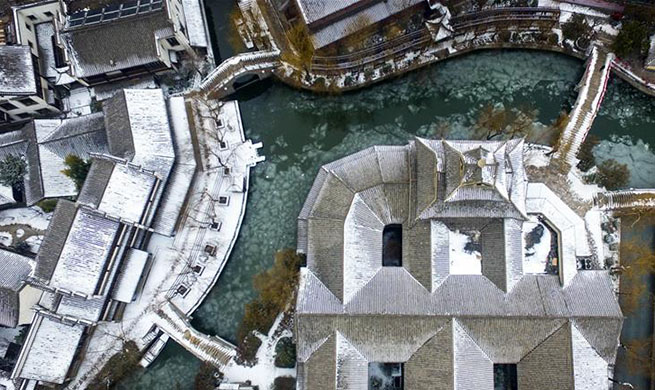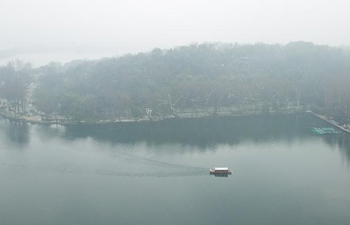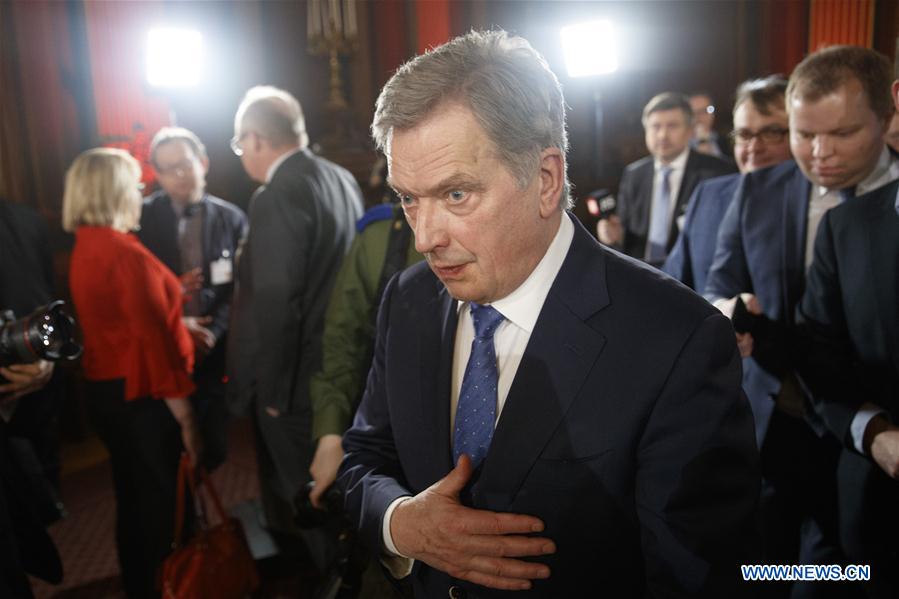
Finnish incumbent President Sauli Niinisto (front) attends a press conference after winning a landslide victory in the presidential election in Helsinki, Finland, on Jan. 28, 2018. With all ballots counted, Finnish incumbent president Sauli Niinisto was re-elected in Sunday's presidential election. (Xinhua/Matti Matikainen)
HELSINKI, Jan. 28 (Xinhua) -- Finnish incumbent president Sauli Niinisto was re-elected in Sunday's presidential election.
Niinisto won 62.7 percent of the votes after all ballots were counted on Sunday night, and hence there was no need to start a second round. He said he was surprised to see the landslide victory.
Green party candidate Pekka Haavisto came the second with 12.4 percent. None of the rest six candidates won over seven percent.
Populist candidate Laura Huhtasaari gained 6.9 percent and anti-EU independent candidate Paavo Vayrynen got 6.2 percent. Analysts said the two had shared the same pool of voters.
Former centrist prime minister Matti Vanhanen got 4.1 percent. Social democratic candidate Tuula Haatainen got 3.2 percent and Meja Kyllonen of the Left League 3 percent.
The ostensibly pro-NATO candidate Nils Torvalds did badly. He deplored that his NATO message was not accepted beyond his 1.5 percent support.
Talking to the media when the victory was certain, Niinisto said he was surprised with the result, and he believed people were satisfied with his performance and there was no need to change.
The voting turnout was 69 percent and three percent less than the previous presidential election in 2012. Analysts said the presidential elections are not more interesting to the people than parliamentary elections. The supremacy of Niinisto may also have reduced their interest.
Niinisto, 69, will start serving his second term until 2024.
Niinisto underlined that he has no intention of becoming a "big leader" of Finland, indicating he does not envisage a greater role, especially in the domestic policies.
The powers of the president in domestic issues have been reduced in recent decades. Latest opinion polls have shown a public desire for more presidential powers again.
Largely a symbolic head of state, the president has kept a co-management role in the foreign policy and is also the commander in chief of the country's defense forces.
Niinisto said his cooperation with the current prime minister and his predecessors on foreign policy and the European Union issues has been successful. Local commentators said, however, that any future prime minister or foreign minister will have difficulty if they want to increase their influence in foreign policy during Niinisto's new term.




